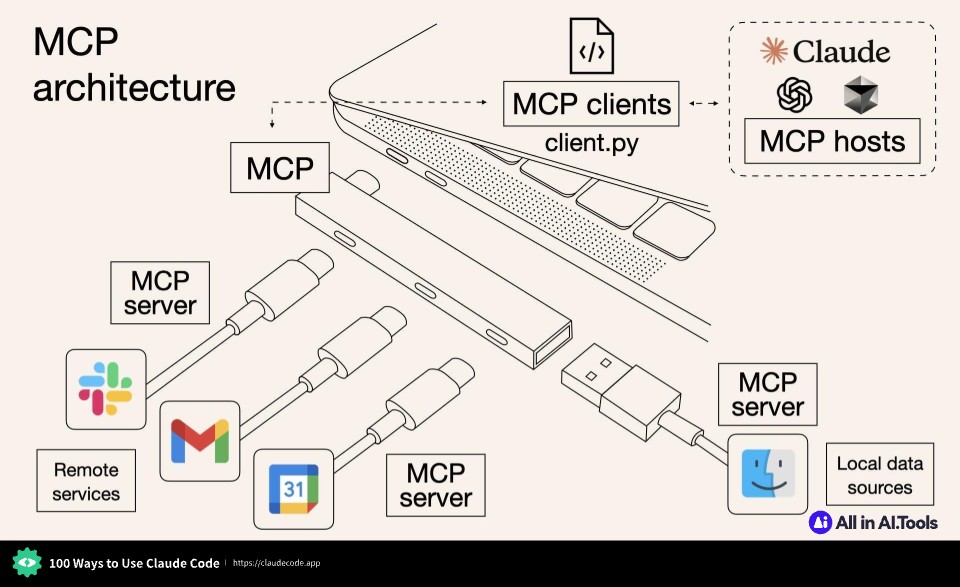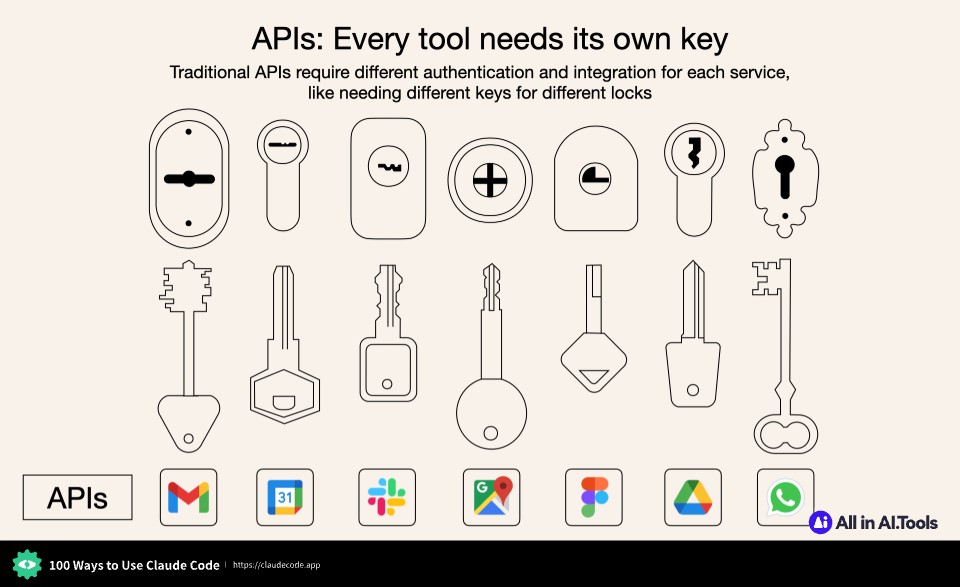Discover and integrate MCP servers to extend Claude's capabilities
Monitor browser logs directly from Cursor and other MCP compatible IDEs.
This MCP server provides browser automation capabilities through Puppeteer, allowing interaction with both new browser instances and existing Chrome windows.
An advanced web browsing server for the Model Context Protocol (MCP) powered by Playwright, enabling headless browser interactions through a flexible, secure API.
FastAPI server implementing MCP protocol Browser automation via browser-use library.
Mirror of
A Model Context Protocol server that provides browser automation capabilities using Playwright and Deno 2.
Playwright Model Context Protocol Server - Tool to automate Browsers and APIs in Claude Desktop, Cline, Cursor IDE and More 🔌
MCP server for browser automation using Playwright
GitLab API, enabling project management
An MCP proxy server that aggregates and serves multiple MCP resource servers through a single HTTP server.
A simplified MCP server for terminal command execution
A sample project testing Model Context Protocol (MCP) server and client interaction.
Laravel specific MCP server - better AI pair programming
A test repository created using the GitHub MCP server
A Model Context Protocol (MCP) server that provides Xcode-related tools for integration with AI assistants and other MCP clients.
一个基于Spring Boot 的MCP(Model Control Protocol)服务示例项目
MCP server providing code quality checks (pylint and pytest) with smart LLM-friendly prompts for analysis and fixes. Enables Claude and other AI assistants to analyze your code and suggest improvements.
Tools for seamless integration of different systems and services.
Cloud infrastructure and deployment management tools.
AI-powered tools for creative design workflows across 3D and 2D mediums.
AI-powered tools for product development, design review, and performance monitoring.
Tools for monitoring, analytics, and operational efficiency.


Explore Claude Cowork, Anthropic's groundbreaking AI agent built on Claude Code foundations. Discover how it enables file access, document creation, and task automation for everyone—not just developers. Learn how it integrates with MCP servers and extends Claude Code capabilities.
Explore the major [Claude code](https://claudecode.app) 2.1.1 update featuring 109 CLI improvements, automatic hot reload for skills, sub-agent execution, enhanced security, performance optimizations, and smarter prompt behavior. Learn about all the new features and improvements.
Master the art of prompting Claude with Anthropic official guide. Learn 10 proven strategies to 10x your Claude Opus and Sonnet 4.5 performance. Discover how better prompts lead to better results with practical examples and real-world applications.
Deep dive into sophisticated SSH workflows for Claude Code power users. Learn zero-friction authentication, session management, and advanced techniques that transform your vibe coding experience.
MCP (Model Context Protocol) is an open protocol that standardizes how applications provide context to LLMs. Think of MCP like a USB-C port for AI applications, providing a standardized way to connect AI models to different data sources and tools.
MCP Servers are lightweight programs that expose specific capabilities through the standardized Model Context Protocol. They act as bridges between LLMs like Claude and various data sources or services, allowing secure access to files, databases, APIs, and other resources.
MCP Servers follow a client-server architecture where a host application (like Claude Desktop) connects to multiple servers. Each server provides specific functionality through standardized endpoints and protocols, enabling Claude to access data and perform actions through the standardized protocol.
Yes, MCP Servers are designed with security in mind. They run locally with explicit configuration and permissions, require user approval for actions, and include built-in security features to prevent unauthorized access and ensure data privacy.